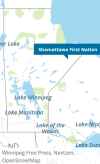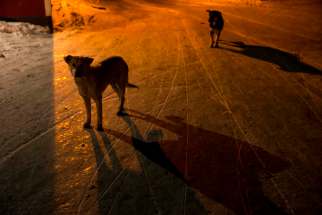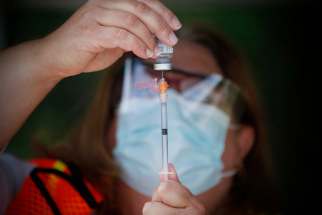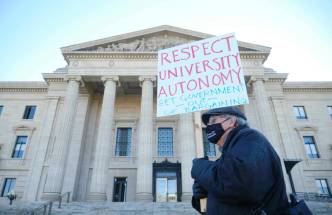Northern girl attacked by dogs faces long recovery Reserve carries out massive dog cull after mauling
Read this article for free:
or
Already have an account? Log in here »
To continue reading, please subscribe:
Monthly Digital Subscription
$0 for the first 4 weeks*
- Enjoy unlimited reading on winnipegfreepress.com
- Read the E-Edition, our digital replica newspaper
- Access News Break, our award-winning app
- Play interactive puzzles
*No charge for 4 weeks then price increases to the regular rate of $19.00 plus GST every four weeks. Offer available to new and qualified returning subscribers only. Cancel any time.
Monthly Digital Subscription
$4.75/week*
- Enjoy unlimited reading on winnipegfreepress.com
- Read the E-Edition, our digital replica newspaper
- Access News Break, our award-winning app
- Play interactive puzzles
*Billed as $19 plus GST every four weeks. Cancel any time.
To continue reading, please subscribe:
Add Free Press access to your Brandon Sun subscription for only an additional
$1 for the first 4 weeks*
*Your next subscription payment will increase by $1.00 and you will be charged $16.99 plus GST for four weeks. After four weeks, your payment will increase to $23.99 plus GST every four weeks.
Read unlimited articles for free today:
or
Already have an account? Log in here »
Hey there, time traveller!
This article was published 16/11/2021 (1482 days ago), so information in it may no longer be current.
A seven-year-old girl who was attacked by a pack of wild dogs on a northern First Nation will require extensive reconstructive surgery.
Shamattawa Chief Eric Redhead said Tuesday the child’s injuries were so serious that a doctor cared for her as she was airlifted to Children’s Hospital in Winnipeg from the remote reserve, instead of a nurse or a paramedic.
He said at least five dogs were involved.
“A local carpenter heard the attack and ran and saved that child’s life. He got the girl to the nursing station. If it hadn’t been for him, I don’t think we would be having this conversation.
“I spoke to him briefly. He had to fight them off.”
“A local carpenter heard the attack and ran and saved that child’s life. He got the girl to the nursing station. If it hadn’t been for him, I don’t think we would be having this conversation.” – Shamattawa Chief Eric Redhead
The girl was outside on Thursday when the dogs pounced.
“Remembrance Day was a really wonderful day and she was out playing outside her home when she was attacked,” said Redhead.
“She was in really bad shape when she left. She will make a full recovery, but she will need extensive surgery.”
Community members of the fly-in community, which is more than 700 kilometres northeast of Winnipeg, had no choice but to kill dozens of so-called rez dogs to protect residents.
“We had to put down a large number of dogs over the weekend,” he said. “Over 100. Every dog roaming freely, unfortunately, had to be put down. We don’t like to do it, but we had to do it.
“It’s not the first attack recently. There have been others. People were injured. We have to protect our children and our band members.”
“We had to put down a large number of dogs over the weekend. Over 100. Every dog roaming freely, unfortunately, had to be put down. We don’t like to do it, but we had to do it.” – Chief Eric Redhead
The problem of wild dogs has afflicted remote communities in the past; domesticated dogs go astray, have several litters and join other packs of dogs that can terrorize residents.
Donnelly Rose Eaglestick, a 24-year-old mother, was killed by a pack of dogs at Little Grand Rapids First Nation in May 2017.
In Shamattawa, a six-year-old boy was attacked in April 2013, and suffered serious injuries to his head and neck.
RCMP spokeswoman Cpl. Julie Courchaine said the latest dog attack occurred on the afternoon of Remembrance Day and the criminal investigation has concluded.
“(The) RCMP determined the dogs did not belong to anyone and there was no criminality,” said Courchaine.
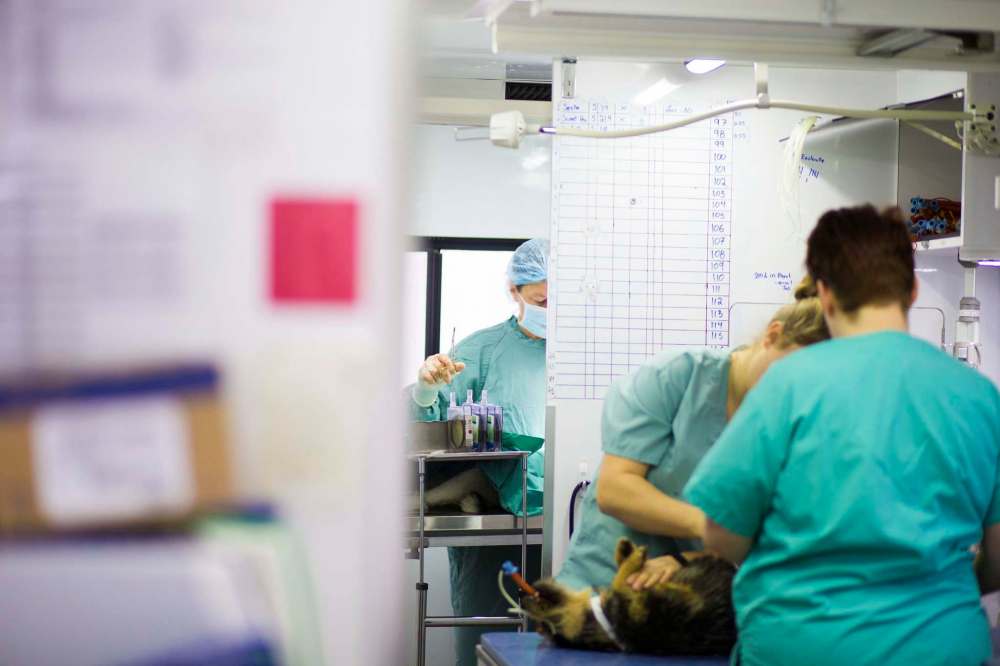
Lindsay Gillanders, a spokeswoman for Manitoba Underdogs Rescue, which operates spay-and-neuter clinics in remote communities and finds homes for northern dogs, said the attack shouldn’t have happened.
“I’m angry because it is a completely preventable thing. We are 100 per cent volunteer and donation based. We get no government money.
“But we know when we run spay-and-neuter clinics in these communities, we can reduce the animal population. We know it works.”
“This just breaks my heart.”
Gillanders said the canine population can get out of control quickly because one dog can produce about 20 puppies a year. Each of the young dogs is able to produce 20 pups within a year of being born.
“They compete for females to mate with, they compete for food, and then they form packs and that’s when they can get into trouble.”
“The government has a say in pet ownership and they have a say in wildlife, but these animals are domestic animals who have gone wild so they fall in a crack.” – Chief Eric Redhead
Gillanders said on the organization’s goal is to own a portable veterinary clinic.
“Right now, we partner with vets who have portable clinics, and the Winnipeg Humane Society, but if we had our own we could do many more spay-and-neuter clinics,” she said. “With fewer dogs, there wouldn’t be dogs getting hit by vehicles, others freezing to death, or what happened here.
“We hope there are no more little girls or boys or adults who get hurt again.”
Redhead hopes the government can step in to help alleviate the persistent and dangerous problem. He also said the community does work with outside organizations to spay and neuter rez dogs, and get canines adopted out, but the pandemic has curtailed those efforts.
“It’s kind of weird,” he said. “The government has a say in pet ownership and they have a say in wildlife, but these animals are domestic animals who have gone wild so they fall in a crack.
“I can imagine what the province is spending on the care of this child. They should be spending (that) on prevention. Spay-and-neuter clinics are the long-term solution.
“I don’t want to have another conversation like this.”
kevin.rollason@freepress.mb.ca

Kevin Rollason is one of the more versatile reporters at the Winnipeg Free Press. Whether it is covering city hall, the law courts, or general reporting, Rollason can be counted on to not only answer the 5 Ws — Who, What, When, Where and Why — but to do it in an interesting and accessible way for readers.
Our newsroom depends on a growing audience of readers to power our journalism. If you are not a paid reader, please consider becoming a subscriber.
Our newsroom depends on its audience of readers to power our journalism. Thank you for your support.

